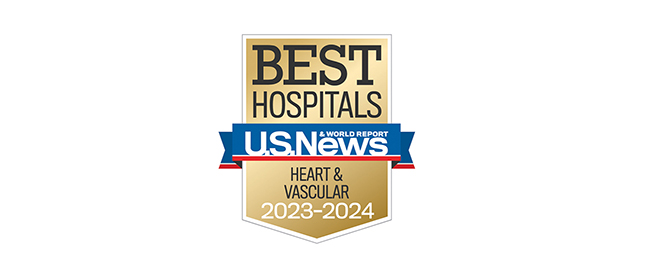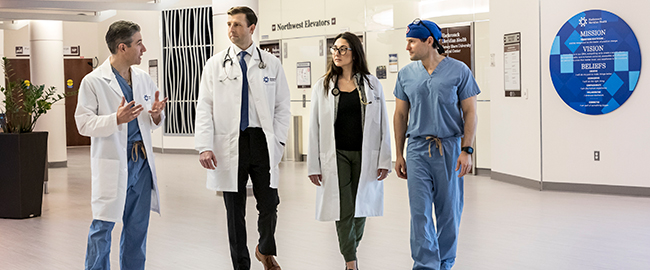Cardiac Resynchronization Therapy
If you have congestive heart failure, your doctor may recommend cardiac resynchronization therapy, also known as biventricular pacing. Cardiac resynchronization therapy (CRT) improves the heart’s pumping action and increases blood flow to your body. It also can help prevent future heart failure-related problems from developing.
With CRT, our patients see improvements in their shortness of breath and swelling in the legs, enhanced exercise endurance and a better quality of life.
Cardiac resynchronization therapy may be recommended by your cardiologist if:
- You have moderate to severe congestive heart failure
- Your heart ventricles do not contract in unison
- Lifestyle changes and medicine haven’t improved symptoms such as shortness of breath and swelling in the legs
Nearly one third of people with congestive heart failure have lower heart chambers, called ventricles, that do not pump in unison. This issue worsens the function of an already damaged heart.
Cardiac resynchronization therapy uses a small device called a biventricular pacemaker implanted under the skin just below the collarbone. It produces electrical pulses to stimulate the heart muscles to pump at the same time.
Some CRT devices have a built-in defibrillator. The implantable cardiac defibrillator (ICD) detects dangerous, fast heartbeats and sends an electric pulse to restore a normal rhythm.
You’ll receive personalized cardiac resynchronization therapy customized for the best possible results.
- The biventricular pacemaker is implanted during a minor surgery by a cardiac electrophysiologist – a cardiologist who specializes in the electric activity that controls your heart rhythms.
- The pacemaker is implanted just under the skin below the collarbone. Using X-ray-guided technology, the electrophysiologist feeds the pacemaker’s wires through a vein to the heart. Leads are placed in each ventricle of the heart. The leads are tested to make sure they are in the correct position and then connected to the pacemaker.
- The procedure takes a few hours and is performed while you’re awake with medicine to make you comfortable. Most people stay in the hospital a day after the surgery to make sure the device is programmed correctly.
- For the first few weeks you will need to limit activities, such as lifting things or vigorous physical exercise. Some people are referred to cardiac rehabilitation to gain strength.
- Having an implanted device requires lifelong care and maintenance. Your care team will provide support for recovery and living with a CRT device.







